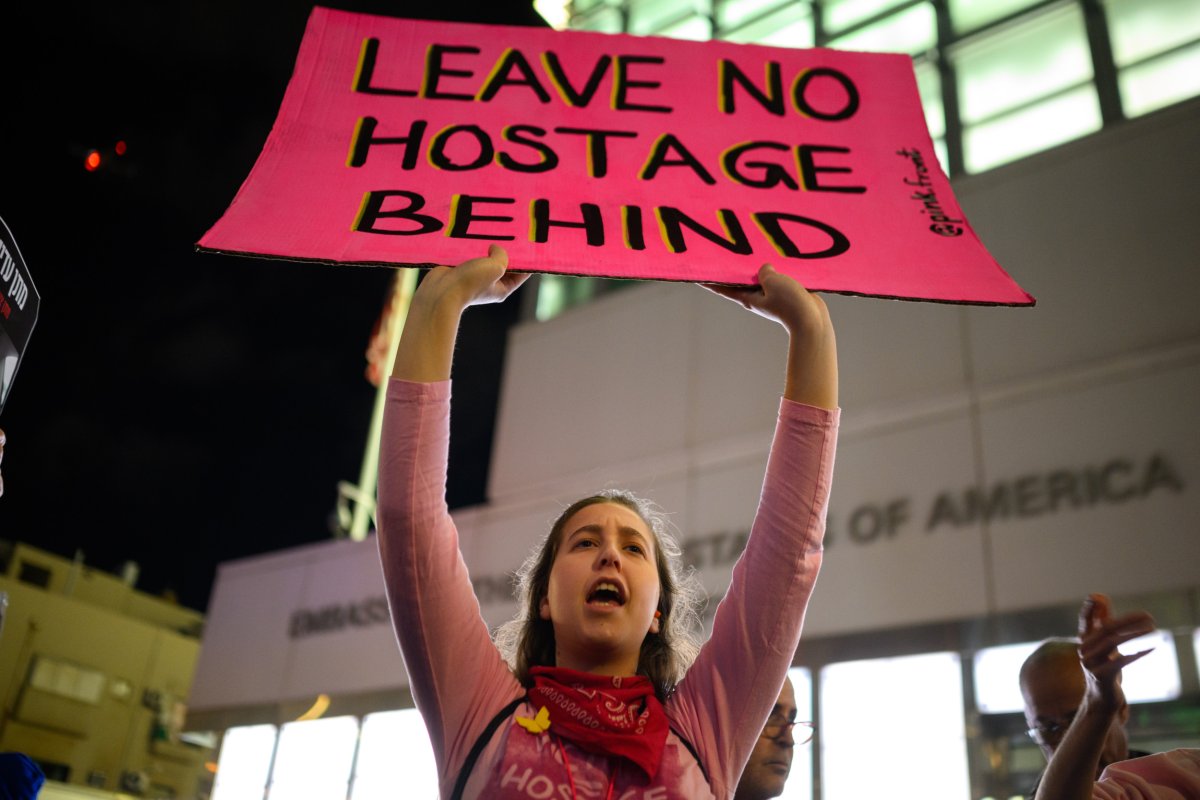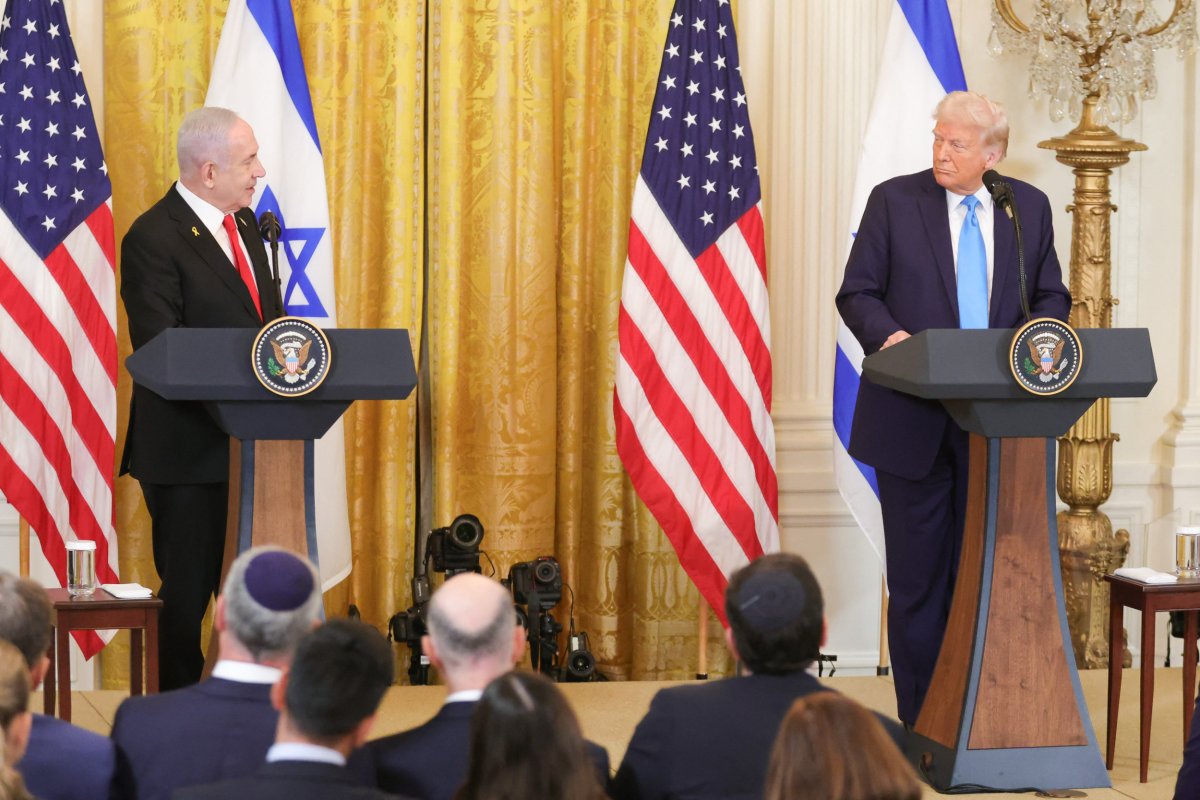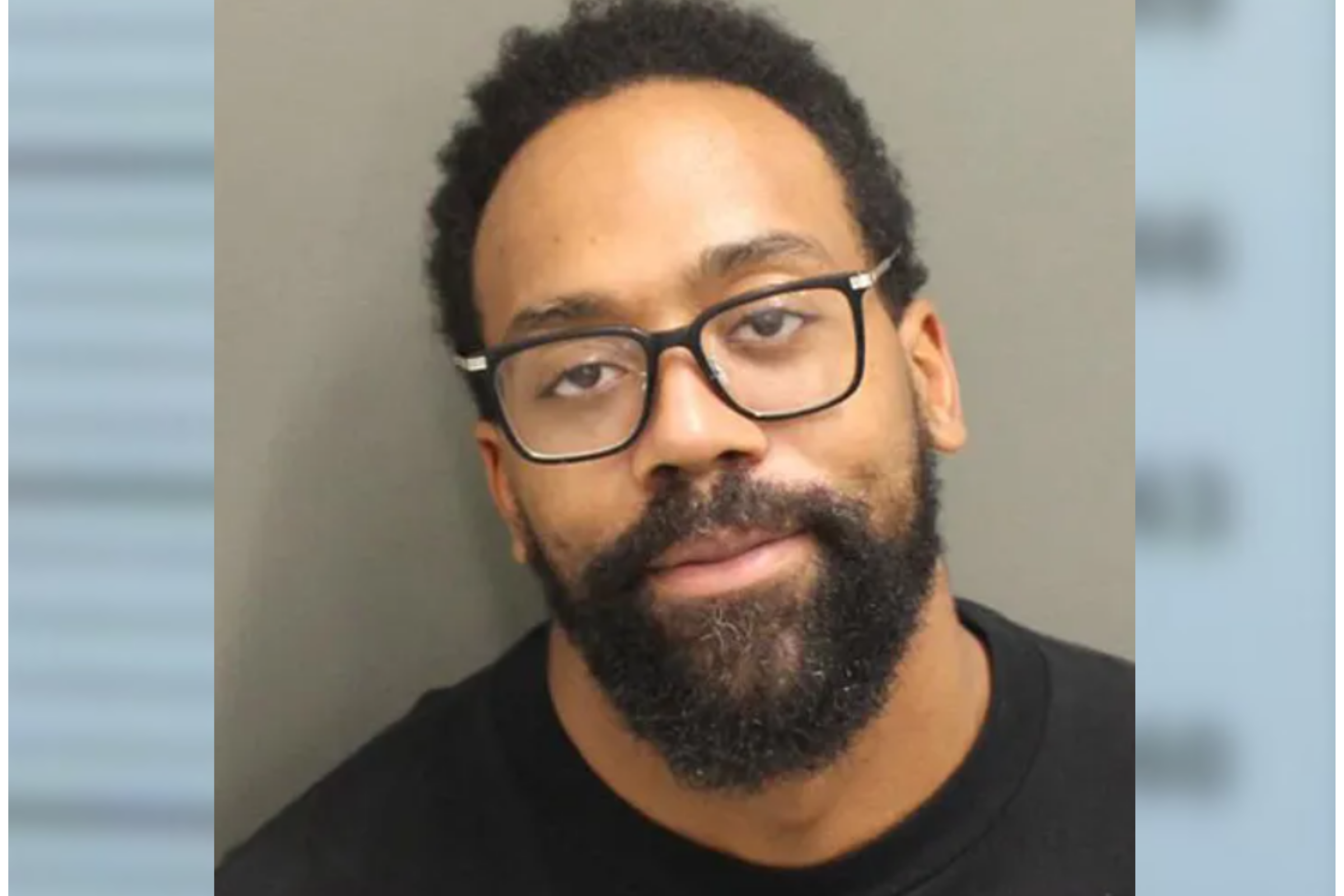President Donald Trump's proposal for the U.S. to "take over" Gaza and resettle Palestinians has prompted concern over the fate of the remaining hostages held by Hamas.
Trump made the statement on Tuesday in a news conference with Israeli Prime Minister Benjamin Netanyahu, sparking international condemnation.
A relative of one Israeli prisoner still in Hamas captivity told Newsweek on Wednesday that he was encouraged by the Trump administration's comments that all hostages would return home. Israel believes Hamas is still holding 79 hostages.
Newsweek has contacted the Hostages and Missing Families Forum for comment.
Why It Matters
Following 15 months of conflict, the first phase of a ceasefire between Israel and Hamas went into effect on January 19. It included the release of some hostages captured by the militant group in exchange for the release of some Palestinian prisoners held in Israel.
Hamas said on Tuesday that the second phase of talks in the ceasefire deal, which involved haggling over the release of the remaining hostages, had begun. However, Trump's comments about relocating the Palestinian population could upend further talks.

What To Know
On October 7, 2023, following an attack on southern Israel, Hamas captured 250 people. During the first phase of the ceasefire, which is set to last six weeks, fighting has halted, and the militant group has released some hostages in exchange for Palestinian prisoners.
Phase two is intended to focus on the release of the remaining hostages and the withdrawal of Israeli troops from Gaza. However, Trump has met with Netanyahu at the White House and proposed the U.S. take over Gaza and resettle its people.
When asked what message he would give to the prisoners still held by Hamas, Netanyahu said Israel would get them all back but also achieve its war aims.
Ronen Neutra—the father of Omer Maxim Neutra, the Israeli American soldier killed by Hamas—told the news outlet YNet that he was "shocked" by Trump's comments. He urged the leaders to keep in mind that the remaining hostages' lives were at stake.
Moshe Emilio Lavi—the brother-in-law of Omri Miran, who is still in Hamas captivity—told Newsweek that while Gaza's future will be determined at a later date, what must be addressed immediately is the fate of those held hostage.
Lavi said he was encouraged by the Trump administration's statements, which called for the return of all remaining hostages in phase one and the swift negotiation of phase two so that all captives could return home.
Avi Melamed, a regional analyst and former Israeli intelligence official, told Newsweek it was significant that Hamas Politburo member Mousa Abu Marzouk said on Wednesday that his group was willing to hold talks with the Trump administration.
This was a signal that Hamas was willing to be more receptive to concluding the ceasefire's second phase—which would include the return of prisoners—and that Trump had introduced a new approach that could incentivize an agreement, Melamed added.

What People Are Saying
Moshe Emilio Lavi, the brother-in-law of hostage Omri Miran, told Newsweek: "While Gaza's future will be determined at a later date, what must be addressed immediately is the fate of our loved ones who have been held hostage in Gaza for 488 days—every day being one too many."
Ronen Neutra, the father of a hostage killed by Hamas, told YNet: "We didn't know about this, but it's clear this move was not spontaneous. We want to remind Trump and Netanyahu that human lives are at stake."
Israeli Prime Minister Benjamin Netanyahu told reporters: "We're not going to give up on any of them, and we're not going to give up on our other war aims. Hamas is not going to be in Gaza, and we're going to get everyone back."
Avi Melamed, a regional analyst and former Israeli intelligence official, told Newsweek: "Up until now, there was no clear incentive to push Hamas. Now with this shock wave, I think we could expect it could boost positive momentum."
What Happens Next
Trump's proposal has been condemned and raises doubt about its feasibility, given that most of those living in Gaza will not want to leave, and their forced removal would be prohibited under international law.
What Trump's comments mean for the hostages held by Hamas may become clearer if the next phase of the ceasefire negotiations proceeds.




















 English (US) ·
English (US) ·